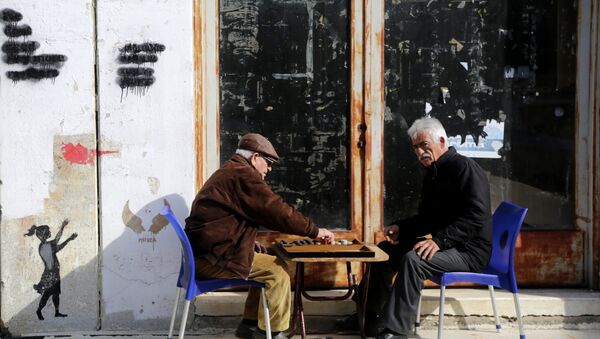#CransMontana: Meeting of President @AnastasiadesCY and Foreign Secretary @BorisJohnson, #CyprusProblem pic.twitter.com/8VNfeR1kt7
— NikosChristodoulides (@Christodulides) June 27, 2017
But Mr. Johnson was reported to have left Geneva on Wednesday (June 28) afternoon in order to return to take part in a crucial vote in Parliament on the Queen's Speech.
Have been in Switzerland for #ConferenceOnCyprus. With flexibility & creativity, we have a real chance for a settlement. UK ready to support
— Boris Johnson (@BorisJohnson) June 28, 2017
Why did you leave Mr @BorisJohnson? #UK has a responsibility towards #Cyprus https://t.co/1nPtxkrG6V
— Alexandra ATTALIDES (@AAttalides) June 28, 2017
#Cyprus conference: Departure of @BorisJohnson not as being suggested bad omen at all. He needs 2 b back in #UK for #QueensSpeech am told.
— Helena Smith (@HelenaSmithGDN) June 28, 2017
In 1974, Turkey invaded the north of the island, coming to the rescue of the Turkish Cypriot minority after a far-right Greek nationalist group mounted a coup and tried to enact "enosis" — or union — with Greece.
The EOKA-B group, led by Nikos Sampson, had made blood-curdling threats to remove Turkish Cypriots from the island.
At #ConferenceonCyprus in #CransMontana to bring #EU support to UN talks pic.twitter.com/VTNb3zEKqQ
— Federica Mogherini (@FedericaMog) June 28, 2017
Some of our group in #CransMontana this morning and yesterday at the airport, demanding #UniteCyprusNow pic.twitter.com/Uh99XCIVvl
— Unite Cyprus Now (@UniteCyprusNow) June 28, 2017
The Turkish Army occupied the northern third of the island and Turkish Cypriots later proclaimed the Turkish Republic of Northern Cyprus (TRNC).
Turkey maintains military presence in TRNC, which is only recognized by Ankara as an independent state.
Moment of opportunity for #Cyprus now in #cransmontana as #ConferenceonCyprus gets underway pic.twitter.com/oJ7t6Vjur4
— UK in Cyprus (@UKinCyprus) June 28, 2017
President Nicos Anastasiades and the TRNC leader, Mustafa Akinci, have been involved in the UN-led reunification talks since May 2015.
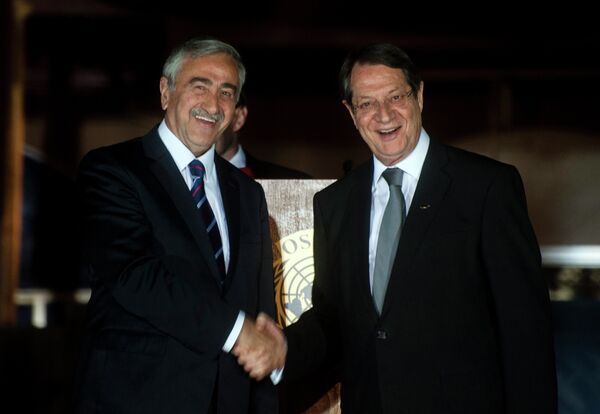
In May, President Anastasiades said another plebiscite could be held on the deal, similar to the one on the Annan Agreement in 2004.
"If we can meet the concerns regarding the security and guarantees and if we manage to find a solution as regards the territorial adjustments, then we are going to be free to discuss the remaining unresolved issues," he told Sputnik.
Britain, the former colonial power, is a guarantor of Cypriot independence, hence Mr. Johnson's role in the talks in Geneva on Wednesday.
Britain also retains an army and air force base on the island in what are known as Sovereign Base Areas.
The Cyprus talks, under the umbrella of the UN, have been making slow headway since 2015, but in January the two sides said significant progress had been made.
Reunification would mean the world's last divided city, Nicosia — known as Lefkosia to the Turkish Cypriots — being reunited.
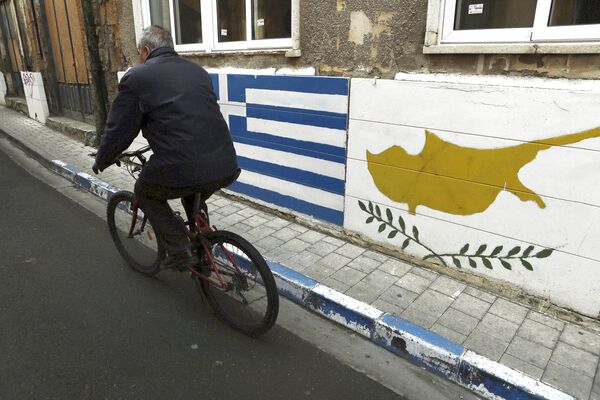
Two of the main obstacles are the presence of the Turkish Army and also the future of thousands of Turkish settlers who were brought to the island from Anatolia in the last 40 years.
Thousands of Greek Cypriots fled their homes in the north of the island and a smaller number of Turkish Cypriots left their villages in the south.
I hope #CyprusTalks tomorrow will be fruitful — a historic chance for reunification. Flexibility is needed & EU role will be critical! pic.twitter.com/JIvG3wO0le
— Guy Verhofstadt (@GuyVerhofstadt) 27 June 2017
"The way I understand it is that both sides seem to agree that the best way of solving the problem is to compensate as many people as possible, which would minimize the number of people who have to move out of the house they are currently living in," Dr. Hubert Faustmann, a professor of history and political science at the University of Nicosia and director of the office of the Friedrich-Ebert Foundation told Sputnik.
"But the problem is that the cost will be very, very high. The original estimate was £20 billion (US$25.6 billion), more recently that went down to £10 billion (US$12.8 billion), but that is a huge burden for the island," he told Sputnik.
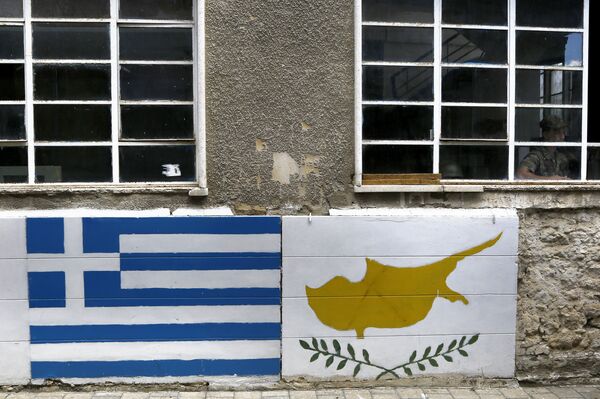
Dr. Faustmann said the presence of the Turkish soldiers was the most difficult obstacle to peace and reunification.
"There are ways around it. One model discussed is a limited number of troops to remain, not under the command of Turkey or Greece but maybe as part of an international peacekeeping force."
The buffer zone in Cyprus. The island has been divided since the 1974 war. Today the two sides are negotiating the terms of reunification. pic.twitter.com/B6zIO7zWrB
— Nikolia Apostolou (@NikoliaA) 9 June 2017
He said the recent discovery of oil and gas off the coast of Cyprus should work as a "catalyst" but so far it had not helped.
"Potentially it is a carrot for both sides because they can probably only be exploited properly if there is a solution and it would turn the hydrocarbons into a win-win solution… it is clearly an incentive," Dr. Faustmann told Sputnik.
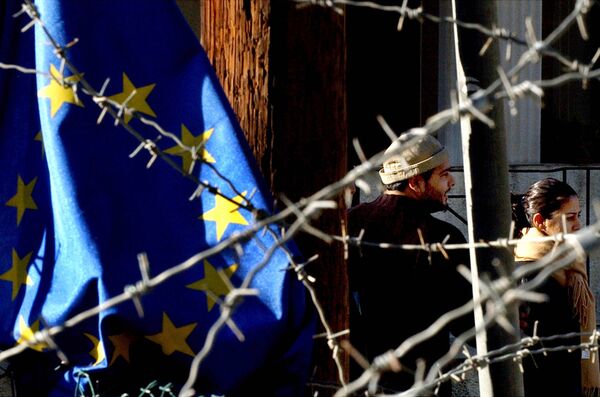
Dr. Faustmann said any deal which was agreed in Geneva had to be passed by both communities in referendums.
"A Turkish Cypriot 'yes' remains far more likely than a Greek Cypriot 'yes' for a number of reasons. It will be, if the security deal is not a very good one, very hard to pass any solution in the south of the island."

Dr. Faustmann also said it was unclear what role Mr. Johnson would play in the talks but he said:
"Britain is not part of the problem, but it is definitely part of the solution."
He said the international community was clearly trying to influence both sides to agree a deal but he said nobody really had enough "leverage" to persuade either the Greek Cypriots or the Turkish Cypriots to agree a deal.

